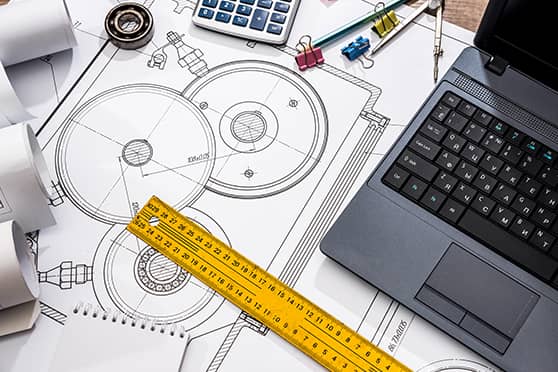Summary
Cracking JEE Advanced/Mains or state joint entrance exams is the best way to study Mechanical Engineering
Jadavpur University, Kolkata, and IIEST Shibpur offer both bachelor’s and master’s courses in Mechanical Engineering
If you’re interested in Robotics, Artificial Intelligence (AI), Vehicle Design, Nanotechnology or Fluid Mechanics, Mechanical Engineering is going to be your degree of choice. Apart from covering core fields like Thermodynamics, Materials Science and Structural Analysis, this Engineering discipline offers the chance to specialise in niche areas like Turbine Engineering or Electric Vehicle Technology.
What is Mechanical Engineering
This Engineering stream deals with the designing, manufacturing and testing of machines. It needs a strong grounding in Physics, Applied Maths, Mechanics and Material Science. Mechanical Engineering students need to attend workshops and practical sessions in specialist labs as part of their course work.
Studying Mechanical Engineering:
- You need to clear your Class XII board exams or an equivalent exam with Physics, Chemistry, Maths as compulsory subjects. You need at least 75% marks for admission to IITs, NITs and GFTIs.
- You need to clear JEE Mains, conducted by the National Testing Agency (NTA), for admission to NITs, CFTIs and other engineering institutes.
- You need to clear JEE Advanced to get into IITs and IIT (ISM) Dhanbad. To be eligible for JEE Advanced, you need to be among the top 2,50,000 successful candidates (across all categories) in the BE/BTech paper of JEE Mains.
- You can get a Mechanical Engineering degree by clearing any of the state joint entrance exams.
- For a master’s degree in Mechanical Engineering, you need to clear GATE (Graduate Aptitude Test in Engineering).
Some top institutes for Mechanical Engineering:
IIT Kharagpur, West Bengal
Course: BTech in Mechanical Engineering.
- Duration: Four years.
- Admission: Depends on your rank in JEE Advanced.
Course: MTech in Mechanical Engineering.
- Duration: Two years.
- Admission: Depends on your GATE rank.
Click here to learn more.
Jadavpur University, Kolkata, West Bengal
Course: BE in Mechanical Engineering.
- Duration: Four years.
- Admission: Depends on your rank in the West Bengal Joint Entrance Examination (WBJEE).
Course: ME in Mechanical Engineering.
- Duration: Two years.
- Admission: Depends on your GATE rank.
Click here to learn more.
Indian Institute of Engineering Science and Technology (IIEST), Shibpur, Howrah
Course: BTech in Mechanical Engineering.
- Duration: Four years.
- Admission: Depends on your rank in JEE Mains.
Course: MTech in Mechanical Engineering.
- Duration: Two years.
- Admission: Depends on your GATE rank.
Course: Dual Degree (BTech—M. Tech.)
- Duration: Five years.
- Admission: Depends on your rank in JEE Mains.
Click here to learn more.
National Institute of Technology, Durgapur, West Bengal
Course: BTech in Mechanical Engineering.
- Duration: Four years.
- Admission: Depends on your rank in JEE Mains.
Course: MTech in Mechanical Engineering.
- Duration: Two years.
- Admission: Depends on your GATE rank.
Click here to learn more.
Delhi Technological University, Delhi
Course: BTech in Mechanical Engineering.
- Duration: Four years.
- Admission: Depends on your rank in JEE Mains.
Course: MTech in Mechanical Engineering.
- Duration: Two years.
- Admission: Depends on your GATE rank.
Click here to know more.
National Institute of Technology, Rourkela, Odisha
Course: BTech in Mechanical Engineering.
- Duration: Four years.
- Admission: Depends on your rank in JEE Mains.
Course: MTech in Mechanical Engineering.
- Duration: Two years.
- Admission: Depends on your GATE rank.
Click here to learn more.
New prospects in Mechanical Engineering
Computer-aided mechanics has opened new avenues for mechanical engineers. New fields of study and research are coming up everyday. For instance, Mechatronics is a combination of Mechanical Engineering, Electrical Engineering and Information Technology that deals with complex engineering systems and automation processes.
Robotics, Aerospace Engineering and Automotive Engineering are some of the areas in which a Mechanical Engineering student can specialise in.
Job roles with a Mechanical Engineering degree:
-
Mechanical engineer: They are in charge of creating specifications for updated or new components and systems, as well as of developing, designing, manufacturing, and installing them.
-
Design engineer: They are in charge of designing and exploring new systems and products. They also make existing items more efficient and effective. Designing automobiles and drafting sketches with computer based tools are their chief duties.
-
Purchase and quality control executive: They supervise employees and monitor product development activities to guarantee that quality and efficiency standards are satisfied. The iron and steel industry, backbone of the Indian economy, recruits mechanical engineers in steel factories.
-
Automobile engineer: Their responsibilities include developing new technologies and assembling automobile parts. They also modify and improve some existing automobiles that are in use.
-
Testing engineer: They analyse and test the machinery. Installing and maintaining the efficiency of all machine components is another responsibility for these professionals.
-
Aeronautical engineer: They design aircraft and propulsion systems by putting into use basic theory, practical aspects and technology. They also study the aerodynamic performance of aircraft.
Last updated on 18 Apr 2022

